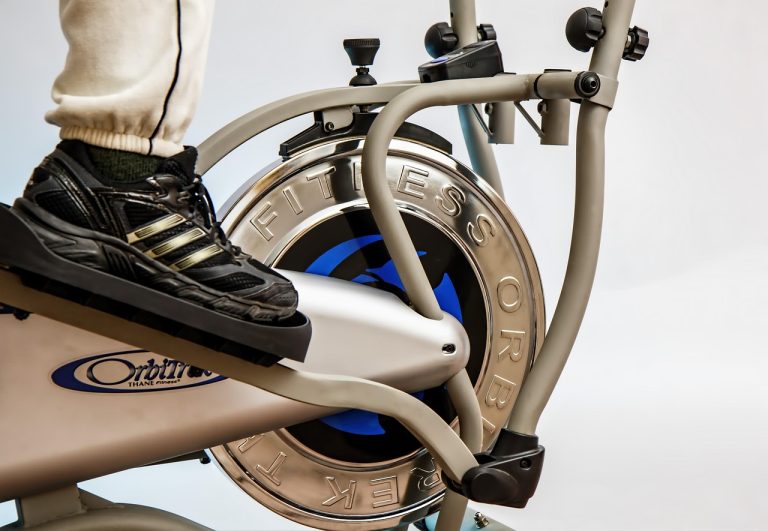Intermittent Fasting During Menopause: What Really Works?
If you’ve hit menopause and feel like your body has stopped responding to everything you’ve tried—welcome to the club.
You’re eating healthy. You’ve cut carbs. You might even be working out more than ever.
And yet… the weight won’t budge.
Menopause makes weight loss feel impossible. But it doesn’t have to be.
The secret isn’t another restrictive diet—it’s understanding your changing hormones and giving your body the reset it desperately needs.
That’s where intermittent fasting (IF) comes in.
In this guide, we’ll show you how intermittent fasting works during menopause, how to adjust your fasting routine to support your hormones, and how to avoid common mistakes that could stall your progress.

🔄 How Hormones Affect Fat Storage in Menopause
Let’s be clear—you’re not doing anything wrong.
Your body is simply working differently now.
During menopause, the key female hormones that influence metabolism, fat storage, and appetite begin to shift—dramatically.
Here’s what happens:
🔹 Estrogen Drops
Estrogen helps regulate fat metabolism and insulin sensitivity. When it declines, your body stores more fat, especially around the belly.
🔹 Progesterone Declines Too
Low progesterone contributes to water retention, mood swings, and cravings—making it harder to stay consistent with any weight loss plan.
🔹 Insulin Resistance Increases
Menopausal women often become more insulin resistant, making it harder to process carbs and burn fat efficiently.
🔹 Cortisol (Stress Hormone) Goes Up
More stress = more cortisol. This hormone promotes belly fat storage, disrupts sleep, and increases hunger.
These hormonal shifts make traditional calorie-cutting and exercise plans far less effective. You need an approach that works with your hormones—not against them.
💡 Benefits of Intermittent Fasting for Menopausal Women
Intermittent fasting is not just about eating less—it’s about resetting your body’s systems and restoring hormonal balance.
For women in menopause, intermittent fasting offers a host of benefits that directly address the challenges above.
✅ 1. Improved Insulin Sensitivity
Fasting lowers insulin levels, helping your body access stored fat for fuel instead of constantly storing it.
✅ 2. Supports Fat Loss—Especially Belly Fat
Because IF promotes lower insulin and improved hormone balance, many women report fat loss in the most stubborn areas.
✅ 3. Balances Hunger Hormones
Fasting helps regulate leptin and ghrelin, the hormones responsible for satiety and hunger, so you’re not constantly battling cravings.
✅ 4. Supports Human Growth Hormone (HGH)
Fasting stimulates HGH production, which helps preserve muscle, boost metabolism, and improve fat burning.
✅ 5. Reduces Inflammation and Improves Energy
Many women report reduced bloating, more stable energy levels, and better mental clarity within just a few weeks of IF.
In short: Intermittent fasting gives your body time to reset, heal, and return to balance.
⏰ Adjusting Fasting Windows for Hormonal Balance
While IF is powerful, menopausal women shouldn’t fast the same way as younger women or men.
Here’s how to make it work for your body:
🔸 Start Gently
Begin with a 12:12 schedule (12 hours eating, 12 hours fasting). Gradually work up to 14:10 or 16:8 only if your body feels good with it.
🧘♀️ If you’re stressed, sleep-deprived, or burnt out—stick with shorter fasts until your body stabilizes.
🔸 Listen to Your Body
- Are you more irritable during your fast?
- Feeling dizzy or extremely fatigued?
- Experiencing worsened sleep?
These are signs to ease back. IF should energize, not deplete.
🔸 Support Your Fast with Hydration
Drink water, black coffee, herbal teas, and consider adding electrolytes (especially during longer fasts).
🔸 Fast on Low-Stress Days
Try fasting on days when your schedule is lighter or when you can prioritize rest, not during high-stress, high-demand days.
🔸 Fuel Properly When You Eat
Break your fast with:
- Protein (chicken, eggs, legumes)
- Healthy fats (avocado, olive oil)
- Fiber-rich carbs (veggies, quinoa, sweet potato)
You’re not starving yourself—you’re giving your body time to recover and restore.
⚠️ Common Intermittent Fasting Mistakes in Menopause
Mistake #1: Fasting Too Aggressively Too Soon
Long fasts (20+ hours) or daily fasting from day one can backfire. Start small and see how your body responds.
Mistake #2: Eating Too Little After the Fast
Don’t treat your eating window like a “diet.” You still need enough nutrients and calories to support your metabolism and hormone production.
Mistake #3: Poor Sleep and Stress Management
Sleep and cortisol matter just as much as diet. IF can increase stress if not managed properly—pair fasting with self-care and sleep hygiene.
Mistake #4: Skipping Electrolytes and Hydration
Dehydration leads to headaches, fatigue, and cravings. Always hydrate during fasting windows.
Mistake #5: Using IF as a Way to Restrict More
Intermittent fasting is not about deprivation. It’s about rhythm, balance, and recovery. Respect your body’s signals.
🌟 How Eat Stop Eat Supports Hormonal Fat Loss
If you’re ready to try intermittent fasting but don’t want to obsess over daily schedules, Eat Stop Eat is one of the best plans available—especially for menopausal women.
Developed by nutrition researcher Brad Pilon, Eat Stop Eat offers a simple, flexible method:
✅ Just 1–2 24-hour fasts per week
✅ No calorie counting or carb tracking
✅ Fits into any lifestyle (even busy, stressful ones)
Why Eat Stop Eat is ideal for women in menopause:
- It reduces insulin resistance and supports hormonal repair
- It avoids the chronic stress of everyday fasting
- It allows for normal eating most days—no extreme rules
- It’s backed by real science and real results
Instead of more restriction, you get freedom.
Instead of more dieting stress, you get a plan that gives your body room to reset and heal.
💬 What Women Are Saying
🔹 “I was so tired of trying everything. Eat Stop Eat gave me a method I could stick with. I fast 1–2 times a week and the belly fat I couldn’t shift for 5 years is finally melting away.” – Janine, 54
🔹 “During menopause, I felt like my metabolism had just… stopped. This plan gave me the structure I needed, without stress. It’s the only thing that worked for me.” – Heather, 49
🔹 “It’s not a diet—it’s a rhythm. And it’s changed my life. I’ve lost 17 pounds in 3 months without giving up my favorite foods.” – Lisa, 52
🎯 Ready to Reset Your Body and Feel Like You Again?
Menopause doesn’t have to mean weight gain, brain fog, and frustration. You just need a different approach—one that works with your hormones instead of fighting them.
👉 Get the Proven IF Plan for Women in Menopause
We’ve created a Free 2-Day Intermittent Fasting Starter Plan designed specifically for women over 40 and menopausal women.
You’ll also get access to the Eat Stop Eat system—the fasting method thousands are using to take back control of their body and health.
➡️ Click here to download the plan + see how Eat Stop Eat works for menopausal fat loss
🔁 Final Thoughts
You’ve been told that weight gain in menopause is just part of the process.
But that’s not the full story.
Your body can lose weight again. Your energy can come back. You just need a smarter strategy—one that’s built for the season of life you’re in.
Intermittent fasting, especially when done correctly, can transform how you feel.
Eat Stop Eat is your step-by-step guide to making it simple, doable, and most importantly—effective.






